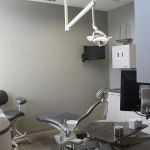The Role of Dental Hygiene in Overall Well-Being
- 1. Understanding the Importance of Dental Hygiene
- 2. The Connection Between Dental Health and Overall Well-Being
- 3. How Poor Dental Hygiene Affects Overall Health
- 4. Steps for Maintaining Good Dental Hygiene
- 5. Real-Life Case Study: The Impact of Dental Hygiene on Health
1. Understanding the Importance of Dental Hygiene
Dental hygiene refers to the practice of keeping your teeth and gums clean to prevent oral diseases and maintain overall health. Brushing your teeth regularly, flossing, and visiting the dentist for professional cleanings are key practices that contribute to good dental hygiene. Maintaining proper dental care not only improves the health of your teeth and gums but also plays a significant role in your overall well-being.
When we think about health, we often focus on our physical fitness, diet, and mental state. However, dental hygiene is just as crucial in maintaining good health. Poor oral hygiene can lead to various health problems that go beyond the mouth, including cardiovascular disease and diabetes. Therefore, understanding the importance of dental hygiene is the first step in improving your overall health.
2. The Connection Between Dental Health and Overall Well-Being
Recent research has shown a strong connection between oral health and overall health. The mouth is the gateway to the body, and harmful bacteria that accumulate in the mouth can enter the bloodstream, leading to various systemic health issues. By practicing good dental hygiene, you can reduce the risk of developing these health complications.
For example, gum disease, a common result of poor dental hygiene, has been linked to an increased risk of heart disease. The inflammation caused by gum disease may affect the blood vessels, raising the risk of atherosclerosis (narrowing of the arteries). Furthermore, individuals with poor oral hygiene are more likely to develop diabetes or experience complications related to the condition.
3. How Poor Dental Hygiene Affects Overall Health
Poor dental hygiene can lead to more than just cavities and bad breath. If left untreated, dental problems can contribute to a variety of health issues, including:
- Cardiovascular Disease: Bacteria from gum disease can enter the bloodstream, leading to inflammation in the heart’s blood vessels, which can increase the risk of heart disease and stroke.
- Diabetes: Gum disease can affect blood sugar control, making it more difficult for individuals with diabetes to manage the condition. In turn, poorly controlled diabetes can increase the risk of developing gum disease.
- Pneumonia: Inhalation of bacteria from the mouth can lead to respiratory infections like pneumonia, especially in people with weakened immune systems.
- Premature Birth: Pregnant women with gum disease may be at an increased risk of preterm birth and low birth weight.
Clearly, poor dental hygiene not only impacts your smile but can also have far-reaching consequences on your overall health.
4. Steps for Maintaining Good Dental Hygiene
Maintaining good dental hygiene is simple and essential for overall well-being. Here are the key steps for taking care of your teeth and gums:
- Brush Your Teeth Twice a Day: Use fluoride toothpaste and brush for at least two minutes, paying attention to all surfaces of your teeth and gums.
- Floss Daily: Flossing removes food particles and plaque between your teeth that brushing can miss, preventing gum disease and cavities.
- Visit the Dentist Regularly: Regular dental checkups and professional cleanings help catch problems early and ensure that your teeth and gums stay healthy.
- Eat a Balanced Diet: A healthy diet supports your dental health by providing the necessary nutrients for strong teeth and gums. Avoid excessive sugary foods and drinks that promote plaque buildup.
- Use Mouthwash: Mouthwash can help reduce bacteria and plaque in your mouth, keeping your breath fresh and reducing the risk of gum disease.
5. Real-Life Case Study: The Impact of Dental Hygiene on Health
Let’s take a look at the story of Sarah, a 40-year-old woman who struggled with gum disease due to neglecting her dental hygiene. Sarah had always been busy with work and family and often skipped brushing her teeth or flossing. Over time, she developed severe gum inflammation, which led to the loss of several teeth. After her dentist explained the connection between gum disease and heart health, Sarah decided to take action.
Sarah started brushing and flossing daily and visited her dentist regularly for cleanings. Within a few months, her gum health improved significantly. Not only did she feel more confident about her smile, but she also noticed an improvement in her overall well-being. Her dentist explained that maintaining good dental hygiene helped reduce inflammation in her body, contributing to better overall health.







 The Center for Pediatric Dental Care & Orthodontics4.0 (231 review)
The Center for Pediatric Dental Care & Orthodontics4.0 (231 review) Michael Brody DDS4.0 (8 review)
Michael Brody DDS4.0 (8 review) Harbor Cove Dental5.0 (191 review)
Harbor Cove Dental5.0 (191 review) All Star Dental Clinic4.0 (322 review)
All Star Dental Clinic4.0 (322 review) Woodbury Family Dentists4.0 (57 review)
Woodbury Family Dentists4.0 (57 review) ChapCare by AltaMed Medical and Dental Group — Pasadena, Fair Oaks3.0 (47 review)
ChapCare by AltaMed Medical and Dental Group — Pasadena, Fair Oaks3.0 (47 review) The Importance of Oral Health Education During Pregnancy for a Healthy Pregnancy
The Importance of Oral Health Education During Pregnancy for a Healthy Pregnancy Best Tips for Brushing Your Teeth Properly for Healthy Gums: Essential Techniques for Oral Health
Best Tips for Brushing Your Teeth Properly for Healthy Gums: Essential Techniques for Oral Health Why Skipping Dental Checkups Can Lead to Bigger Oral Health Problems
Why Skipping Dental Checkups Can Lead to Bigger Oral Health Problems Advantages of Porcelain Dental Restorations
Advantages of Porcelain Dental Restorations How Can Diabetes Cause Tooth and Gum Problems? Preventing and Managing Oral Health Issues
How Can Diabetes Cause Tooth and Gum Problems? Preventing and Managing Oral Health Issues Healthy Habits for Promoting Good Oral Health and Hygiene: Tips for a Healthy Smile
Healthy Habits for Promoting Good Oral Health and Hygiene: Tips for a Healthy Smile